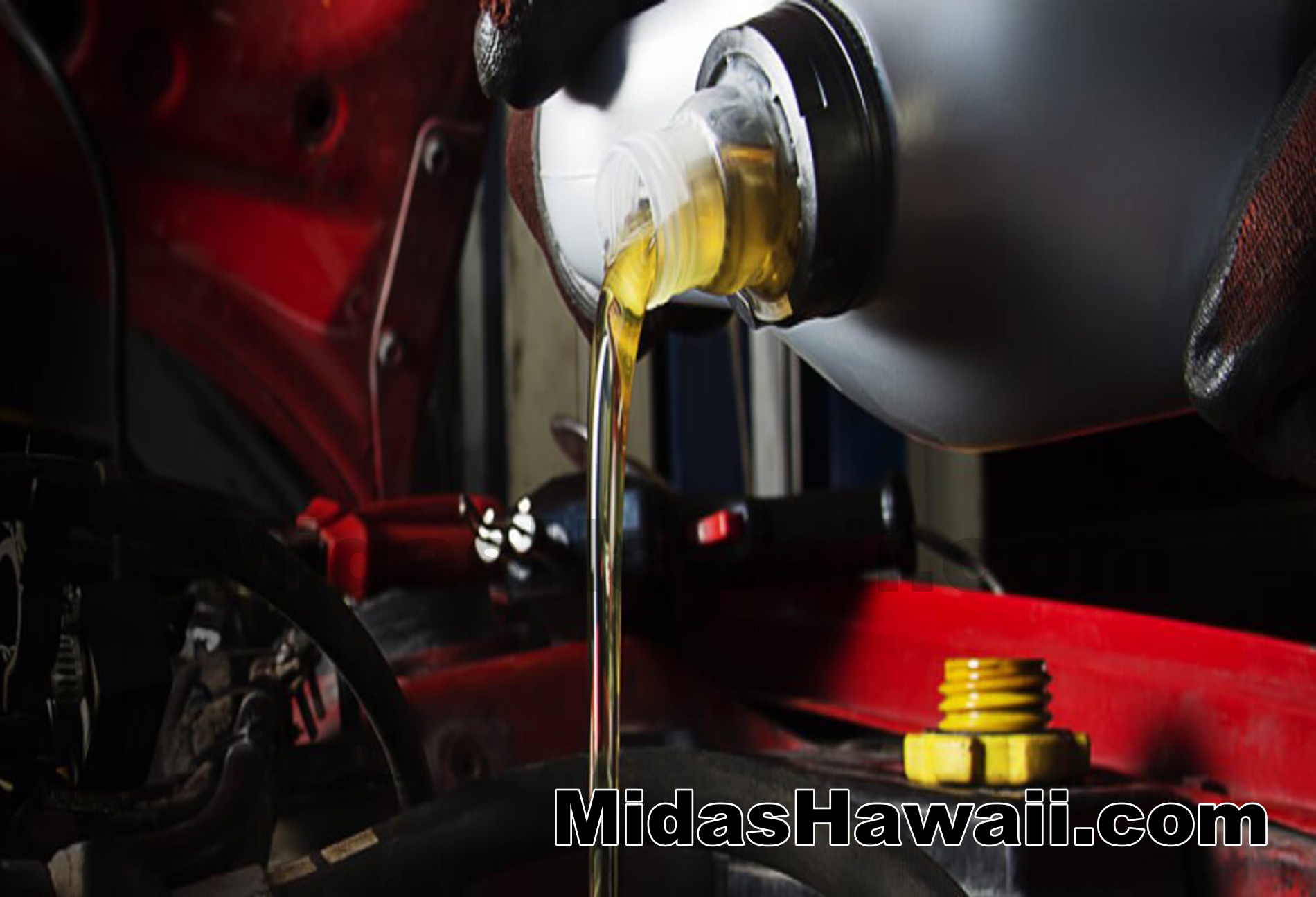Oil Leak
- Tweet
Back to the top
FAQ LEGEND
Back to the top
Oil Leak Questions
A. Most new engine oil leaks can be fixed inexpensively -- but a neglected oil leak can lead to costly, dangerous outcomes: catastrophic engine failure and even engine fires. So come to Midas as soon as you suspect an oil leak. Your engine, your budget, and the environment will thank you!
A. Get an oil/fluid leak diagnosis as soon as possible if you notice any one or more of the following oil leak symptoms:
- The red dashboard light is illuminated.
- You find oil stains (brown or amber fluid) under your vehicle or streaked on engine parts.
- An abnormal drop in your oil level.
- Blue smoke from your exhaust, or the smell of burning oil.
- Grinding or clattering sounds from metal parts ("metal on metal").
A. While oil leak repair is often quick and affordable, you should still treat it as an urgent issue. Ignoring an oil leak can lead to major repairs and safety hazards:
- Environmental impact: Oil leaks can increase engine emissions, and lost oil ends up in the environment instead of being properly recycled at your next oil change.
- Degraded hoses and belts: Oil can damage parts and surfaces not designed to come in contact with it.
- Wear down of metal engine parts from loss of lubrication. If you hear "metal on metal" sounds, your engine parts are grinding against each other.
- Catastrophic engine failure.
- Engine fire hazard.
A. For a very small oil leak, make an appointment for a diagnosis as soon as possible -- and minimize unnecessary driving in the meantime.
For a severe oil leak, consider having your vehicle towed to the appointment. For example, significant oil loss and grinding "metal on metal" sounds suggest that a loss of lubrication is damaging your engine parts. Lose enough oil and your engine can seize and stall. Even worse, strong burning odors and blue smoke indicate a possible fire hazard within the engine. Each situation endangers you, your passengers, and others on the road.
A. Where is your oil leak coming from? Oil leaks commonly originate in these auto parts -- which can either wear out or simply be sealed incorrectly:
- The oil filter.
- The oil drain plug, valve cover gasket, rear main seals, and any other oil seals and gaskets.
- The filler cap.
- The oil pan (or oil pan gasket).
- Hoses and oil lines.
- Piston rings.
- Connections between any of these parts.
A. Oil collecting on the spark plug well can be caused by a leaky valve gasket, valve guide, o-ring, or piston ring. In many cases, the leak can be repaired by replacing the rubber seal.
A. Like all oil and fluid leaks, oil and coolant mixture should be seen by a mechanic at your earliest convenience. The cause is often minor, such as a leaky head gasket. But it can also indicate serious damage such as a cracked engine block.
A. Synthetic oil does not cause oil leaks, but switching to synthetic oil after years of conventional oil changes can reveal preexisting leaks. How? The detergents in synthetic oils clear away thebuild-up (aka sludge) that was previously plugging the leak. One solution: Switching to High Mileage Oil.
A. While it's most important to act quickly when you do see signs of an oil leak, you can also help prevent leaks by following these vehicle maintenance best practices:
- Follow your vehicle's recommended maintenance schedule.
- Use the most protective engine oil compatible with your car, and switch to high mileage oil when your vehicle reaches 75,000 miles.
- Change oil as often as your manual recommends.
ref no:34688
Please send questions about this website to webmaster
Terms of Use / Legal Disclaimer / Privacy Statement
Site Designed and Managed by MacBusiness Consulting

